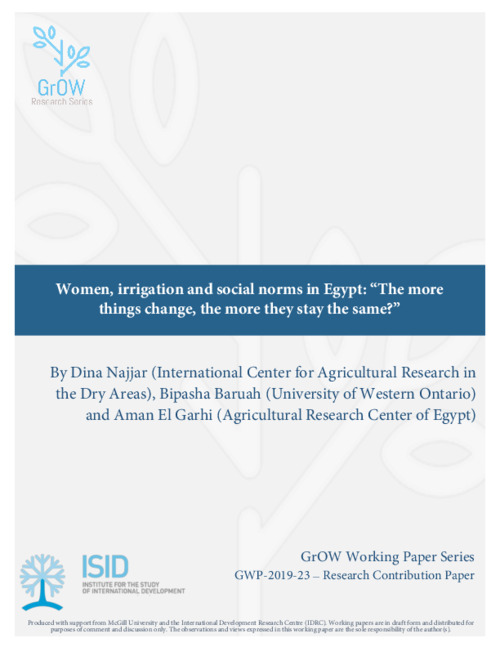Women, irrigation and social norms in Egypt: “The more things change, the more they stay the same?”
Abstract
This paper explores how women and men participate in irrigation activities in Egypt, drawing from a survey administered to 200 men and 202 women and qualitative information from 150 interviews. Women participated in irrigation activities in 78 percent of the 402 households surveyed suggesting that women are far more actively engaged in irrigation efforts in Egypt, and possibly in the wider MENA region, than is generally assumed. The diffusion of certain irrigation technologies such as drip, sprinkler and tatweer in recent years has made irrigation more socially acceptable for women to perform although some women had also been irrigating land long before these technologies became available. We identify land ownership; educational attainment; institutional support from government, donors and NGOs; and access to training in irrigational technologies as factors that enable women to optimally undertake irrigation. These factors enabled women to participate meaningfully in public institutions related to irrigation, such as water user associations (WUAs). Finally, we discovered that desire and ability to participate in WUAs declined dramatically for both women and men when institutional support was withdrawn or eroded. Thus, the paper concludes that we must look at a variety of social categories and relationships to understand women’s involvement in irrigation and to identify ways to strengthen it

